Why We Sleep
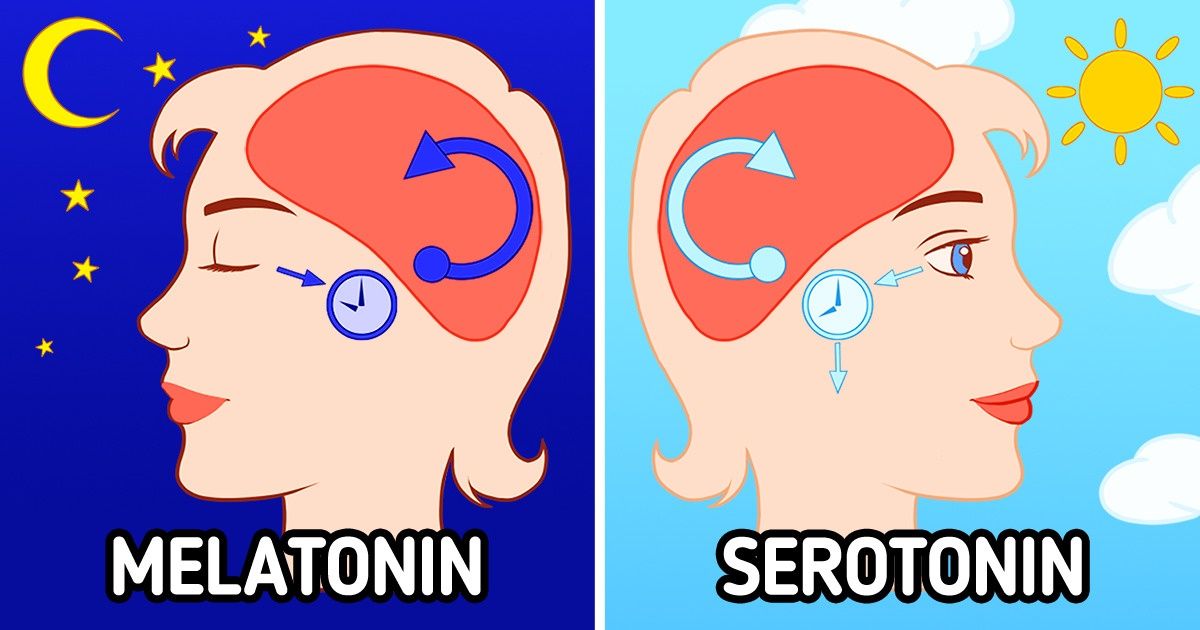
We spend about one-third of our lives sleeping, and even though it’s an important activity for all of us, science still hasn’t managed to figure out everything that’s related to it. It’s widely accepted that there isn’t just one explanation for why we need to sleep, we just don’t know what it is yet.
5-Minute Crafts is walking you through different theories that explain how sleep works and why we need it.
How it works
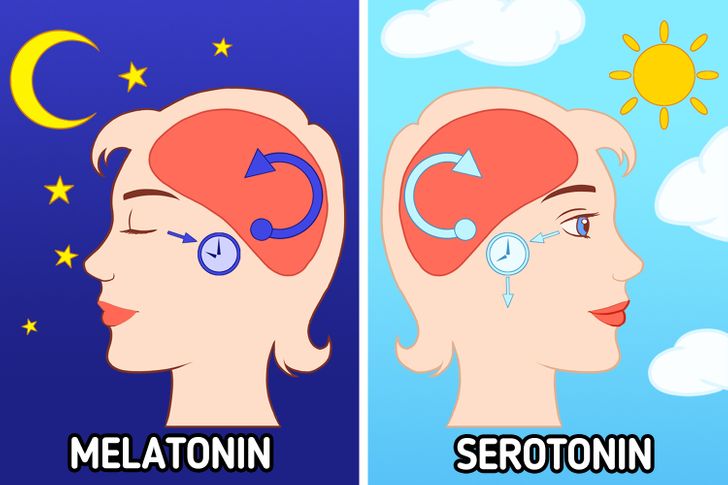
There are 2 main factors that control sleep in our bodies.
- The circadian clock: Most of our bodily processes operate on a clock running over approximately 24 hours, known as circadian rhythm. These processes respond primarily to light and dark, like sleeping at night and being awake during the day, for example. In this case, your brain receives information about incoming light. When there is less light — like at night — your brain makes more melatonin, a hormone that makes you sleepy, ultimately making you drowsy so you can fall asleep.
- Homeostatic sleep pressure: When you wake up in the morning, you’ve just gotten rest, so you’re energetic, but pressure for sleep builds up in our bodies as our time awake increases. For instance, this is why you feel more tired if you didn’t sleep at night. In this case, your sleep pressure is even higher than normal, meaning you feel more tired, even if there’s light outside and your circadian clock dictates that you should be awake. This pressure is necessary in order to sleep, and researchers think that a hormone called serotonin is a way for the brain to build up sleep pressure.
What happens when you sleep
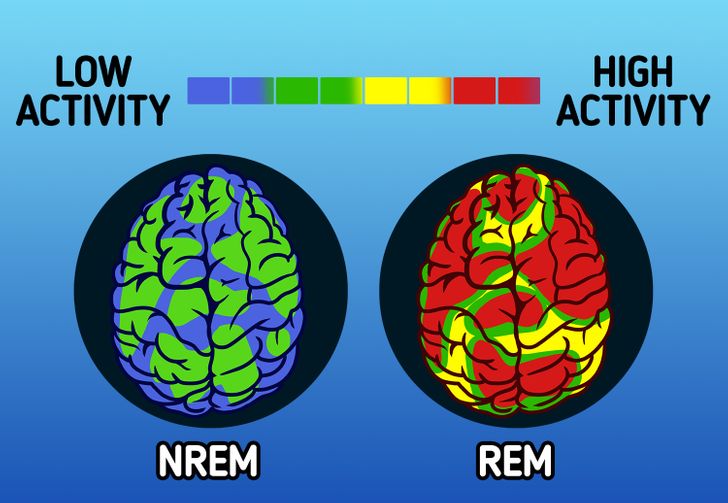
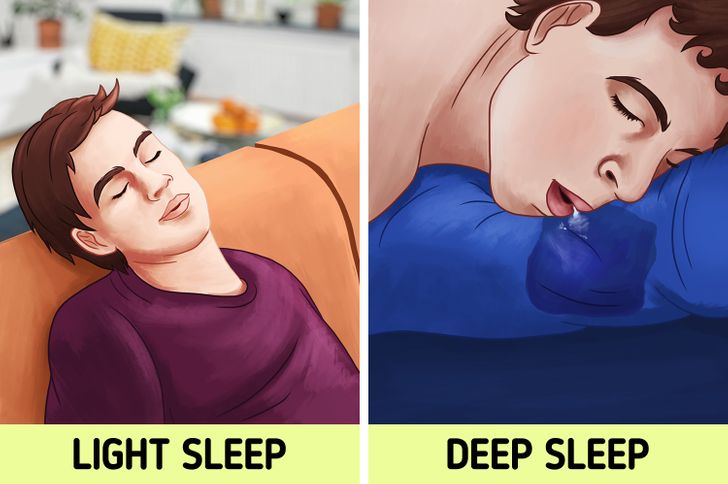
Sleep works in stages that occur multiple times throughout the night.
- NREM stage 1: This is when you first fall asleep. As your body enters light sleep, your brain waves, heart rate, and eye movements slow down.
- NREM stage 2: This stage is the light sleep just before going into a deep sleep. Your body temperature decreases, your eye movements stop, and your heart rate and muscles continue to relax.
- NREM stage 3: This is when deep sleep begins. Your eyes and muscles don’t move. Your body replenishes its energy and repairs cells, tissues, and muscles. You need this phase to feel awake and refreshed the next day.
- REM: This type of deep sleep first happens about 90 minutes after you fall asleep. Your eyes move quickly from side to side and your heart rate and breathing also speed up. Your brain also processes information during this stage, making it important for learning and memory.
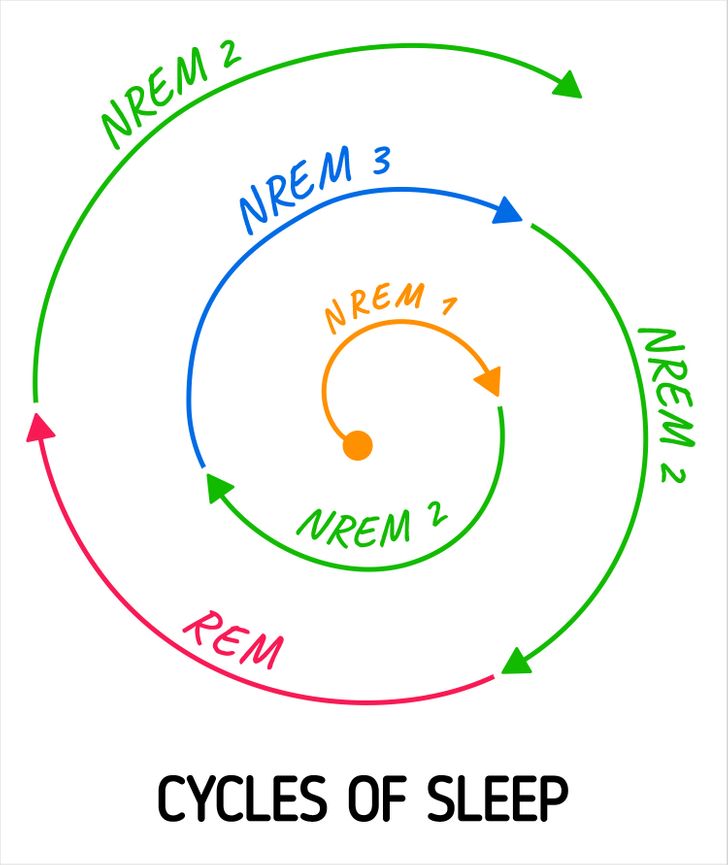
These stages don’t progress in sequence.
- Sleep begins in NREM stage 1 and then moves into NREM stage 2, then 3.
- Then the NREM stage 2 is repeated before entering REM sleep. In fact, during a night of sleep, you spend the most time in stage 2.
- Once REM sleep is over, your body usually returns to NREM stage 2.
Sleep cycles go through these stages approximately 4 or 5 times throughout the night. The first REM sleep you get might last only a short amount of time, but it becomes longer with each cycle.
Why we need sleep
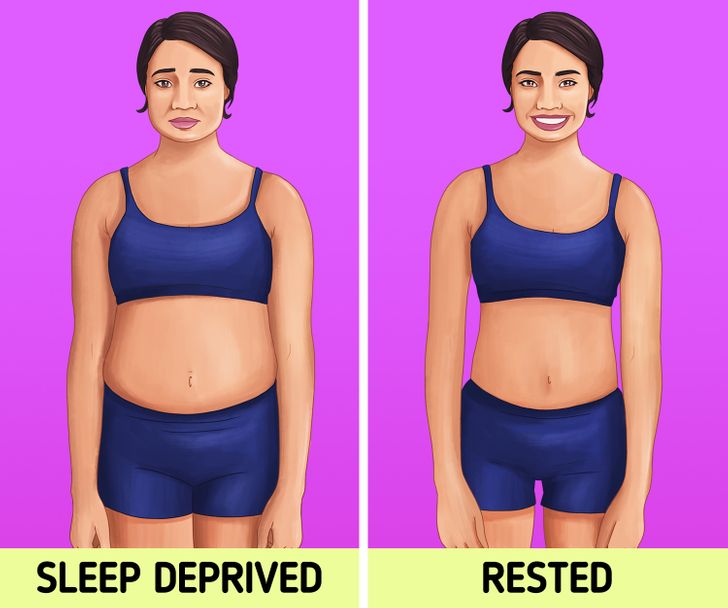
As we mentioned earlier, the reason why we actually need to sleep remains unclear, but some of its effects can shine a light on the matter.
- Weight maintenance: Sleep affects your weight by keeping your hunger hormones balanced. An imbalance makes you hungrier, which may increase the risk of eating more calories and gaining weight.
- Energy conservation: This theory suggests that the main purpose of sleep is to reduce a person’s energy use during times of the day and night when it’s inconvenient and less efficient to hunt for food.
- Cellular restoration: Sleep might be needed for cells to repair and regrow.
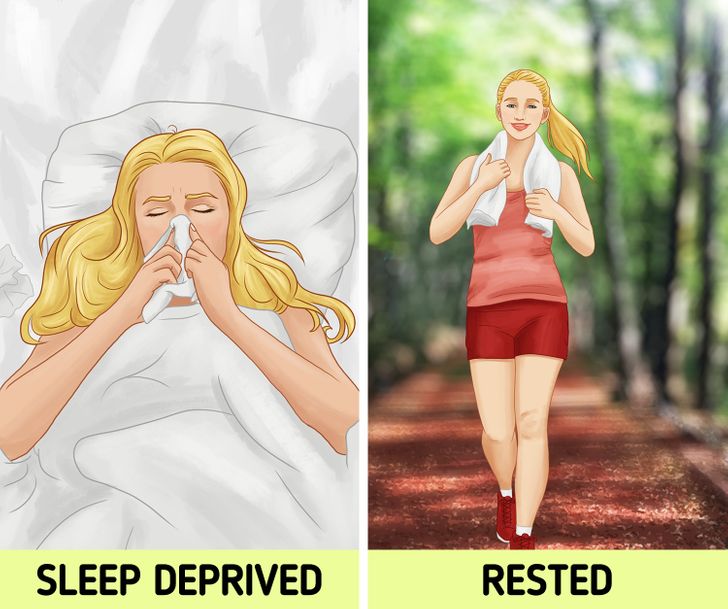
- Immunity: A healthy and strong immune system depends on sleep. Sleep deprivation, for example, can affect your immune response and make your body susceptible to germs.
- Brain function: Sleep might convert short-term memories into long-term memories. It erases information that you don’t need anymore and that might otherwise clutter the nervous system.
- Emotional well-being: Research shows that sleep and mental health are intertwined. It seems like sleep is necessary for emotional health and stability.